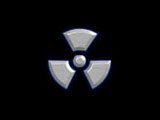|
|
TODAY.AZ / World news
Turkey to construct 3 atomic power stations
18 March 2011 [18:53] - TODAY.AZ
 Turkey will press ahead with plans for two nuclear plants, including one that may use Japanese technology, despite Japan’s crisis and its own tendency to quakes, Energy Minister Taner Yildiz said on Monday, Reuters reported.
Turkey will press ahead with plans for two nuclear plants, including one that may use Japanese technology, despite Japan’s crisis and its own tendency to quakes, Energy Minister Taner Yildiz said on Monday, Reuters reported.Turkish energy officials have been in talks with Tokyo Electric Power Co (TEPCO) and Toshiba on building a nuclear power plant on its Black Sea coast. The government has already agreed with Russia’s Rosatom to build its first plant on the Mediterranean.
Turkey is crisscrossed by geological faultlines, and small earthquakes are a near daily occurrence. In 1999, two tremors killed more than 20,000 people.
"The earthquake in Japan will not effect our plans to build nuclear power plants. There are certainly lessons to be learned from this, and our work and discussions on that continue," Yildiz told NTV channel.
Turkey has made nuclear security a priority for the Mediterranean site, Yildiz said. Both planned plants will use third-generation reactors, which are much safer, he said.
Turkey wants to launch an atomic power industry to diversify its energy mix and boost supply to keep up with soaring demand for electricity amid rapid economic growth. It targets 20 percent of electricity from nuclear power by 2030.
The Ankara-based Chamber of Electrical Engineers (EMO) said in a statement Turkey should see the Japanese earthquake as a warning to abandon its nuclear drive.
The Mediterranean plant is located some 25 km from an active faultline and geologists fear a quake measuring 6 or 7 on the Richter scale could occur there, EMO said.
"The disaster in Japan is proof that the claims of nuclear-power defenders are baseless in the face of a natural disaster. Claims that sturdy construction and compliance with safety standards make nuclear power stations safe do not reflect reality," EMO said in an emailed statement.
Yuksel Oktay, a civil engineer who has worked on nuclear power projects in Turkey, the United States, Mexico and at Fukushima in Japan, said the Black Sea plant will use a safer containment technology than those at Fukushima that have seen partial meltdowns since last week’s quake.
/APA/
URL: http://www.today.az/news/regions/82978.html
 Print version
Print version
Views: 1923
Connect with us. Get latest news and updates.
See Also
- 25 April 2025 [23:30]
Significant reduction in number of new citizenships is expected in Sweden - 25 April 2025 [22:25]
Amazon fine in Japan over counterfeit product sales - 25 April 2025 [21:23]
South Korea ask United States to exempt its goods from duties - 25 April 2025 [20:21]
Austria’s OMV shuts down hydrogen filling station network due to ‘lack of demand’ - 25 April 2025 [19:50]
Apple move production of all iPhones for United States to India in 2026 - 25 April 2025 [18:06]
Azerbaijan Ombudsman’s office holds event on equality and anti-discrimination - 25 April 2025 [09:00]
EC blacklist organizations associated with Huawei - 25 April 2025 [08:00]
Governments of Uzbekistan, Afghanistan and Pakistan to sign railway project - 24 April 2025 [23:30]
Adobe announce mobile version of AI image generator Firefly - 24 April 2025 [22:48]
Istanbul faces its worst tremors since 1999 event in Izmit
Most Popular
 Turkiye opens new chapter in space with TÜRKSAT 6A
Turkiye opens new chapter in space with TÜRKSAT 6A
 Khankendi to host 17th Economic Cooperation Organization Summit
Khankendi to host 17th Economic Cooperation Organization Summit
 Armenia's accusations are misinformation, says Azerbaijani Defense Ministry
Armenia's accusations are misinformation, says Azerbaijani Defense Ministry
 Euroashiotics: Metamorphoses of the EU Mission in Armenia
Euroashiotics: Metamorphoses of the EU Mission in Armenia
 First Indonesian Hajj pilgrims to reach Saudi Arabia next week
First Indonesian Hajj pilgrims to reach Saudi Arabia next week
 President Ilham Aliyev visited Monument to the People's Heroes in Beijing
President Ilham Aliyev visited Monument to the People's Heroes in Beijing
 Middle Corridor project progresses, Kazakhstan-Azerbaijan cooperation strengthens
Middle Corridor project progresses, Kazakhstan-Azerbaijan cooperation strengthens
